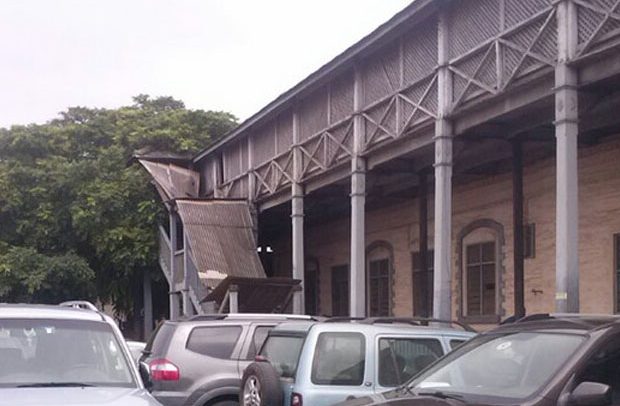Accra Circuit Court
Staff and judges at the Accra circuit courts are on ‘break’ as the Judicial Service struggles to purchase prepaid electricity credit for the courts.
Six out of the 12 different courts at the premises of the former Accra high court have since last Wednesday – March 28, 2018 – not sat as a result of the blackout.
The situation has left many litigants, bailiffs as well as judges and staff of the courts in distress as the situation has halted all activities.
Information available indicates that the Judicial Service spends about GH¢5,000 on credit purchases every month.
It is however, unclear what has caused the delay in purchasing power for the facility since last week, leaving the judges and their clerks and other staff in limbo as they have no idea when power would be restored.
Sources have hinted DAILY GUIDE that some of the judges had decided not to sit until power had been restored.
According to information gathered, some of the judges had even met about the situation and were planning to petition the Chief Justice, if nothing was done about it immediately.
At the time this paper visited the courts yesterday many people were seen sitting in the courtrooms in despair as others loitered in the corridors, hoping that power would be restored.
Those who could not hold their cool expressed frustrations and called on the Judicial Service and others concerned to intervene.
The registrar of the courts was however, not available to provide more insight into the situation, regarding how it had affected the responsibilities of the courts.
This paper has gathered that the registrar was meeting with the Judicial Service secretary – but could not confirm its outcome.
The situation at the courts comes just a few weeks after the Chief Justice had decried how successive governments consistently relegated to the background the needs of the judiciary but focused on the other two arms of government – the legislature and the executive.
In her view, the sizeable parts of funding were given to the executive and the legislature whiles the judiciary was left to its fate with funding that was not enough to run its affairs.
Two weeks ago, judges and magistrates of the lower courts in the country called off their intended industrial action following an intervention by the Chief Justice, Justice Sophia Akuffo.
On March 12, 2018 the bench of the courts served notice to withdraw its services if by March 21, 2018 the government did not improve their conditions of service.
In a letter addressed to the Chief Justice and the Chief of Staff at the Office of the President, the judges maintained that government had refused to pay their new salaries as proposed by the Judicial Council in 2016 and approved by parliament in the 2018 budget.
The letter blamed the government for “shifting goal posts regarding agreed positions on specific issues at previous meetings and employed certain manoeuvres and given various excuses to deny the lower bench of what is rightfully ours.”
BY Gibril Abdul Razak


